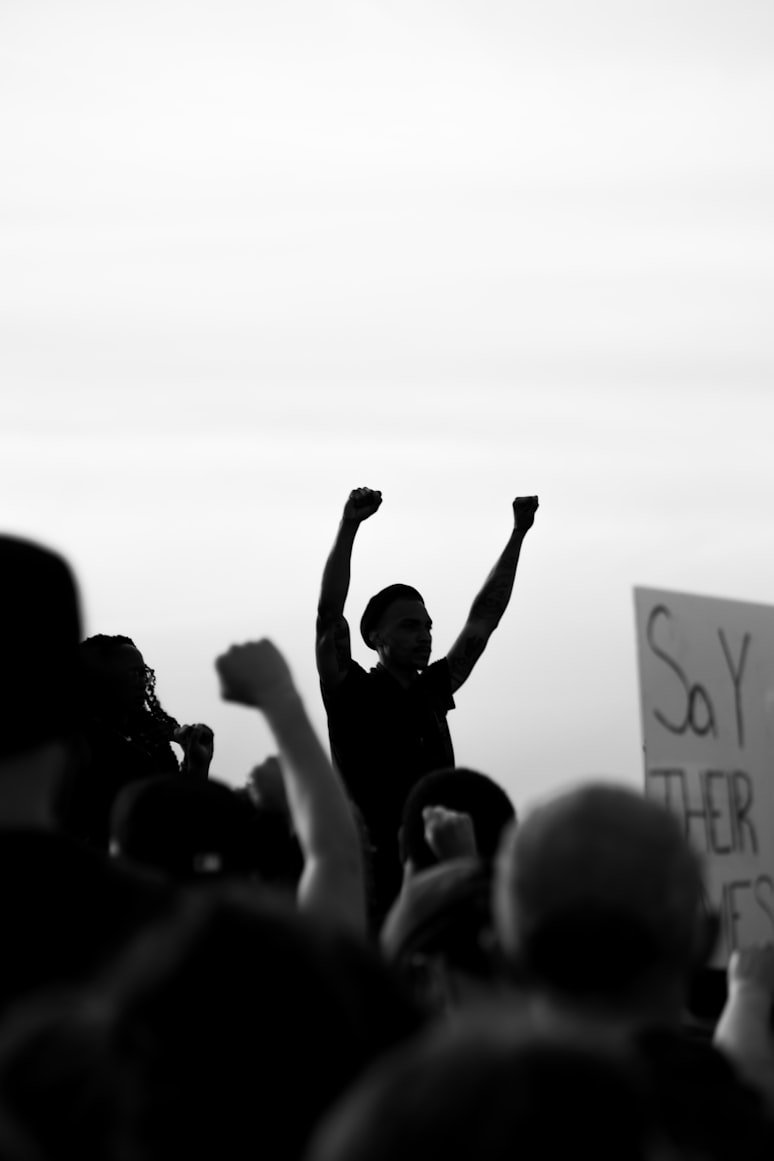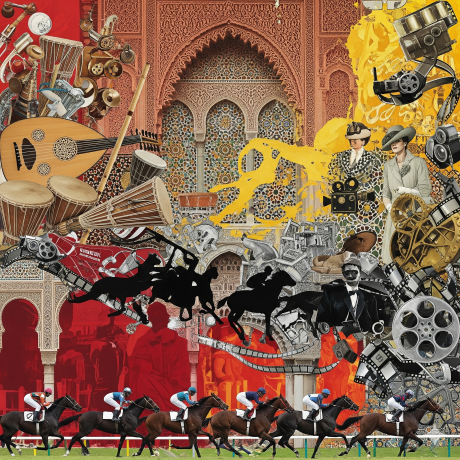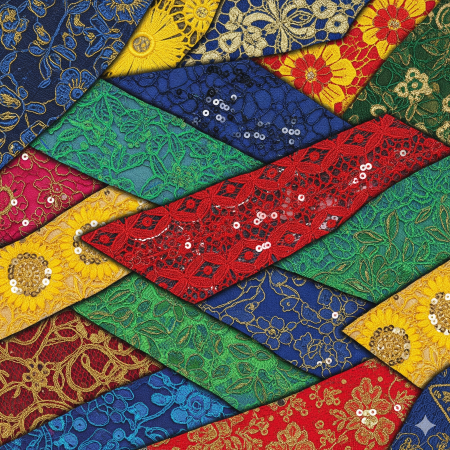Youth vs The State: Why Protesting Still Comes at a High Cost in Africa

AUTHOR: Precious Unusere of ZEAL NEWS AFRICA
In October 2020, thousands of young Nigerians filled the streets with placards and hope, chanting “#EndSARS” in a call to abolish what they termed police brutality. What began as a peaceful protest transformed into a nationwide uprising and eventually, a massacre at the Lekki Toll Gate.
But Nigeria isn’t the only one. From Uganda’s anti-government rallies to South Africa’s student-led fees in 2015 and the anti-Fuel Tax protests in Sudan, the pattern is painfully familiar: Africa’s youth rise up, and the state responds with force, although we cannot dispute the fact that most protests are usually hijacked by hoodlums, leading to a breakdown of law and order.
But why is protesting not seen as a civil right and is met with steep force?
Youth Protest: A Voice for Change or a Threat to Power?
In a continent where over 60% of the population is under 25, youthful dissent is not only inevitable, it’s powerful—it can either be a tool of progressive change or destruction. In many African States, raising your voice is still a risky, often life-threatening act. Protest, though often promised as a constitutional right, is treated like rebellion. Tear gas, bullets, arrests, and blackouts are common responses to demands for justice and change.
Photo Credit: Unsplash.
Does the state fear its own future leaders? Is the right to dissent truly protected or only permitted when it’s convenient?
Why Are African States Still Threatened by Youth-Led Protests?
Many African governments view youth protests not as civic engagement but as a threat to national stability. This fear is rooted in history.
Historical Roots of Fear:Youth were instrumental in anti-colonial movements; today, their activism is seen as a threat to the status quo rather than a force for progress.
Perceived Instability: Governments often equate youth protests with national insecurity instead of civic participation.
Criminalization of Dissent: Despite constitutional rights to protest, it might also be hijacked leading to breakdown of law and order
Misunderstood Expression: Protest, meant to be a peaceful display of displeasure, is viewed by many States as rebellion or disruption.
Fear of Transformation: The real fear is that youth-led protests could spark structural change—something many regimes resist.
Until African States view youth voices as democratic input rather than threats, the cost of protest will remain dangerously high.
Why Are Young Africans Still Willing to Protest Despite the Risks?
Despite arrests, threats, and the lingering trauma of state violence, Africa’s youth continue to raise their voices. From the streets of Lagos to the corners of Kampala and Khartoum, one question keeps echoing: Why protest, if the cost is so high?
The answer lies in the accumulated frustration of a generation raised amid broken promises. Youth unemployment in Sub-Saharan Africa is among the highest in the world, and civic infrastructure is collapsing. For many young people, silence is not an option, it is a slow death in a system that has repeatedly failed them.
Protesting should be the last resort when dialogue is impossible so that peace and order can be maintained. Youth protest isn't just about changing government policies; it’s about asserting their identity, saying: “We are here. We matter. We will not be erased.” These protests carry a sense of dignity and an insistence on being seen and heard in systems that constantly silence them and the State should listen to them.
Youth vs State: Justifying Crackdowns in the Name of “Peace” or “Security”
African States often defend violent crackdowns on youth-led protests by invoking the need for “peace,” “security,” or “national stability,” and in some cases, deadly force all justified under the claim of preventing chaos. States often brand protesting youth as “hoodlums,” “foreign agents,” or “threats to sovereignty,” reframing legitimate civic dissent as rebellion. These measures make protests come at a high cost.
Photo Credit: Artic Qu - Unsplash
Peace and protest don’t have to be enemies. For true national security to exist, citizens must feel heard and not hunted. Governments and youth can meet at a middle ground through policy reforms, open dialogue, and legal protections for peaceful protest. When the state stops equating dissent with danger, and young people are seen not as threats but stakeholders in democracy, then peace becomes authentic, not enforced, but earned.
What Role Does Social Media Play in Youth Protest?
Social media has become both a tool of liberation and a trigger for state paranoia. Platforms like Twitter, TikTok, and Instagram have been used to cause change and at the same time spread misinformation. African youth can also reach global audiences, turning local pain into international outrage.
Social Insight
Navigate the Rhythms of African Communities
Bold Conversations. Real Impact. True Narratives.
Photo Credit: Sagepub - Google image.
But it's sad that some States now monitor social media more aggressively—it is in the rights of the States to monitor social media, but not to the detriment of its citizens, by banning platforms entirely or demanding content removal leads to unrest.
Online activists are increasingly tracked, detained, or targeted through cyber harassment, which shouldn't be so. It shouldn't be a digital battlefield but one that both the State and youth can collectively use for change.
Can Youth Movements Achieve Lasting Change Without Sacrificing Safety?
The question isn't whether youth movements can bring change—it’s whether they can do so sustainably and safely.
History has shown that young people are often the spark of revolutionary moments. But when movements lack long-term strategies, legal support, or leadership transitions, they can lose momentum or be co-opted.
Photo Credit: AP News - Google image.
Safety should not be a luxury. Governments must be pressured locally and internationally to protect, not punish, dissent. Laws must be reformed to uphold, not hinder, the right to protest. And youth must be equipped with both the fire to speak out and the tools to stay alive while doing so.
Until then, young Africans continue to walk a thin line between activism and danger.
Is There a Path Forward?
Yes, but only if we’re honest about where we are.
Across the continent, youth-led resistance is not fading; it’s evolving. But without structural change, protests will continue to be treated as threats rather than calls for justice.
The path forward demands both internal and external shifts:
Social Insight
Navigate the Rhythms of African Communities
Bold Conversations. Real Impact. True Narratives.
Internally, youth movements must focus on sustainability, building structures that outlive viral moments. That means investing in leadership development, legal advocacy, community organizing, and protecting mental health.
Externally, governments must move beyond performative “youth inclusion” and start enacting genuine reforms. Peace and security should not come at the cost of free expression. Protest is not a crime, it is a right, which both the State and Youth should respect.
International bodies, media, and civil society organizations must do more than just issue statements. They must hold different States accountable.
Young Africans are not asking for power; they're asking for a seat at the table and the freedom to shape their future without fear.
Because African youth are not just the future, they are the present, already shaping political discourse and demanding justice. Activism shouldn’t be a death sentence, and democracy must extend beyond the ballot box to the streets. For true progress to take root, the voices of young Africans must not only be heard but also protected. Their courage is not chaos; it is the heartbeat of a continent still fighting to define its freedom.
AUTHOR: Precious Unusere of ZEAL NEWS AFRICA
You may also like...
Bundesliga's New Nigerian Star Shines: Ogundu's Explosive Augsburg Debut!

Nigerian players experienced a weekend of mixed results in the German Bundesliga's 23rd match day. Uchenna Ogundu enjoye...
Capello Unleashes Juventus' Secret Weapon Against Osimhen in UCL Showdown!

Juventus faces an uphill battle against Galatasaray in the UEFA Champions League Round of 16 second leg, needing to over...
Berlinale Shocker: 'Yellow Letters' Takes Golden Bear, 'AnyMart' Director Debuts!

The Berlin Film Festival honored
Shocking Trend: Sudan's 'Lion Cubs' – Child Soldiers Going Viral on TikTok

A joint investigation reveals that child soldiers, dubbed 'lion cubs,' have become viral sensations on TikTok and other ...
Gregory Maqoma's 'Genesis': A Powerful Artistic Call for Healing in South Africa

Gregory Maqoma's new dance-opera, "Genesis: The Beginning and End of Time," has premiered in Cape Town, offering a capti...
Massive Rivian 2026.03 Update Boosts R1 Performance and Utility!

Rivian's latest software update, 2026.03, brings substantial enhancements to its R1S SUV and R1T pickup, broadening perf...
Bitcoin's Dire 29% Drop: VanEck Signals Seller Exhaustion Amid Market Carnage!

Bitcoin has suffered a sharp 29% price drop, but a VanEck report suggests seller exhaustion and a potential market botto...
Crypto Titans Shake-Up: Ripple & Deutsche Bank Partner, XRP Dips, CZ's UAE Bitcoin Mining Role Revealed!

Deutsche Bank is set to adopt Ripple's technology for faster, cheaper cross-border payments, marking a significant insti...






